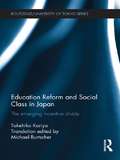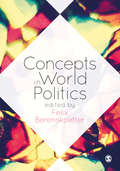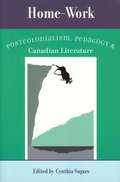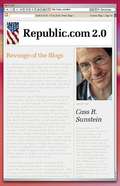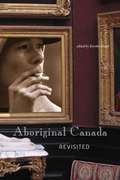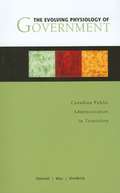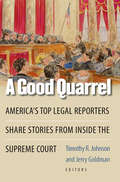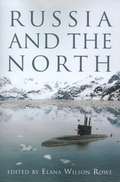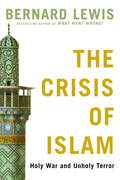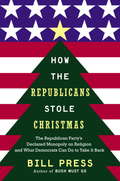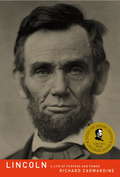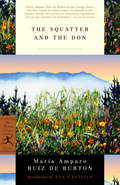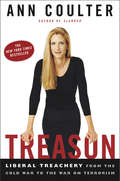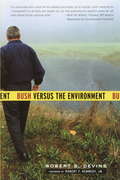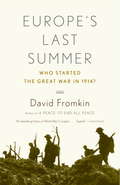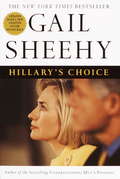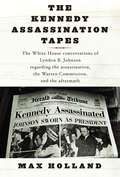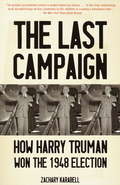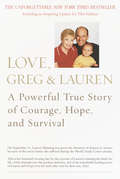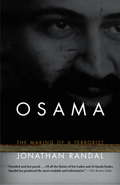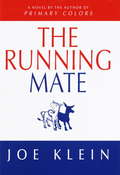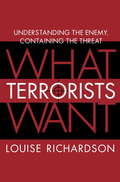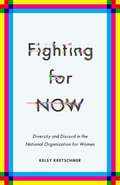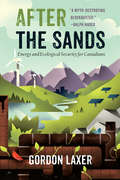- Table View
- List View
Against the Megamachine: Essays on Empire and its Enemies
by David WatsonDavid Watson's wide-ranging essays ponder such themes as the state, empire and war, humanity's tragic relation to the natural world, and the contemporary mass society generated by industrial capitalism and modern technology. His impassioned critique offers a vision of social transformation open to diverse possibilities, and suggests where a new politics must begin: as a radical challenge to the mystique of progress, in defense of nature, memory and spirit.
Education Reform and Social Class in Japan: The emerging incentive divide (Routledge/University of Tokyo Series)
by Takehiko KariyaUntil the early 1990s, Japanese education was widely commended for achieving outstanding outcomes in global comparison. At the same time, it was frequently criticized for failing to cultivate 'individuality' and 'creativity' in students. Wide-ranging education reforms were enacted during the 1990s to remedy these perceived failings. However, as this book argues, the reforms produced a different outcome than intended, contributing to growing disparity in learning motivation and educational aspiration of students from different class backgrounds instead. Takehiko Kariya demonstrates by way of empirical sociological analysis that educational inequality in Japan has been expanding, and that a new mechanism of educational selection has begun to operate, which he calls the 'incentive divide'. Casting light on recent changes in Japanese society to critically reassess educational policy choices, this book's quantitative and qualitative analyses of the 'mass education society' in post-war Japan offer important insights also for understanding similar problems faced in other parts of the world at present. Translated into English for the first time, the Japanese language version of Education Reform and Social Class in Japan won the first Osaragi Jirō Prize for Commentary sponsored by the Asahi shinbun. This book will be of interest to students and scholars in the fields of Asian studies, Japanese studies, education, sociology and social policy.
Concepts in World Politics
by Dr Felix BerenskoetterRecognizing the vital importance of concepts in shaping our understanding of international relations, this ground-breaking new book puts concepts front and centre, systematically unpacking them in a clear, critical and engaging way. With contributions from some of the foremost authorities in the field, Concepts in World Politics explores 17 core concepts, from democracy to globalization, sovereignty to revolution, and covers: The multiple meanings of a concept, where these meanings come from, and how they are employed theoretically and practically The consequences of using concepts to frame the world in one way or another The method of concept analysis A challenging and stimulating read, Concepts in World Politics is an indispensable guide for all students of international relations looking to develop a more nuanced and sophisticated understanding of world politics.
Home-Work: Postcolonialism, Pedagogy, and Canadian Literature (Reappraisals: Canadian Writers)
by Cynthia SugarsCanadian literature, and specifically the teaching of Canadian literature, has emerged from a colonial duty to a nationalist enterprise and into the current territory of postcolonialism. From practical discussions related to specific texts, to more theoretical discussions about pedagogical practice regarding issues of nationalism and identity, Home-Work constitutes a major investigation and reassessment of the influence of postcolonial theory on Canadian literary pedagogy from some of the top scholars in the field.
Republic.com 2.0
by Cass R. SunsteinWhat happens to democracy and free speech if people use the Internet to listen and speak only to the like-minded? What is the benefit of the Internet's unlimited choices if citizens narrowly filter the information they receive? Cass Sunstein first asked these questions in 2001'sRepublic. com. Now, inRepublic. com 2. 0, Sunstein thoroughly rethinks the critical relationship between democracy and the Internet in a world where partisan Weblogs have emerged as a significant political force. Republic. com 2. 0highlights new research on how people are using the Internet, especially the blogosphere. Sunstein warns against "information cocoons" and "echo chambers," wherein people avoid the news and opinions that they don't want to hear. He also demonstrates the need to regulate the innumerable choices made possible by technology. His proposed remedies and reforms emphasize what consumers and producers can do to help avoid the perils, and realize the promise, of the Internet.
Aboriginal Canada Revisited: Politics And Cultural Expression In The 21st Century (International Canadian Studies Series)
by Kerstin KnopfExploring a variety of topics—including health, politics, education, art, literature, media, and film—Aboriginal Canada Revisited draws a portrait of the current political and cultural position of Canada’s Aboriginal peoples. While lauding improvements made in the past decades, the contributors draw attention to the systemic problems that continue to marginalize Aboriginal people within Canadian society.From the Introduction: “[This collection helps] to highlight areas where the colonial legacy still takes its toll, to acknowledge the manifold ways of Aboriginal cultural expression, and to demonstrate where Aboriginal and non-Aboriginal people are starting to find common ground.”Contributors include Aboriginal and non-Aboriginal scholars from Europe and Canada, including Marlene Atleo, University of Manitoba; Mansell Griffin, Nisga’a Village of Gitwinksihlkw, British Columbia; Robert Harding, University College of the Fraser Valley; Tricia Logan, University of Manitoba; Steffi Retzlaff, McMaster University; Siobhán Smith, University of British Columbia; Barbara Walberg, Confederation College.
The Evolving Physiology of Government: Canadian Public Administration in Transition (Governance Series)
by O. P. Dwivedi Tim A. Mau Byron M. SheldrickCanadian public administration has provided a rich ground for examining the changing nature of the state. Currents of political change have rippled through the administration of the public sector, often producing significant alterations in our understanding of how best to organize and administer public services. This volume brings together some of the leading Canadian and international scholars of public administration to reflect on these changes and their significance. Providing a historical perspective on public administration in Canada, the volume examines the shift from a traditional model of administration to newer forms such as new public management and governance, and explores current debates and the place of Canadian public administration within a broader comparative perspective.
A Good Quarrel: America's Top Legal Reporters Share Stories from Inside the Supreme Court
by Timothy R. Johnson Jerry GoldmanWhile reading what top legal reporters say about some of the most important U. S. Supreme Court oral arguments in recent history, go to www. goodquarrel. com to listen to audio and hear for yourself the very style and delivery of the oral arguments that have shaped the history of our nation's highest law. See Preface for full instructions. Contributors Charles Bierbauer, CNN Lyle Denniston, scotusblog. com Fred Graham, Court TV Brent Kendall,Los Angeles Daily Journal Steve Lash,Houston Chronicle Dahlia Lithwick, Slate. com Tony Mauro, American Lawyer Media Tim O'Brien, ABC News David Savage,Los Angeles Times Greg Stohr, Bloomberg News Nina Totenberg, NPRTimothy R. Johnson teaches in the Department of Political Science and the Law School at the University of Minnesota. Jerry Goldman teaches political science at Northwestern University and directs the OYEZ Project, a multimedia archive devoted to the Supreme Court, at www. oyez. org . Cover sketch by Dana Verkouteren"Supreme Court oral arguments are good government in action. A Good Quarrelbrilliantly showcases this important aspect of the Court's work. " ---Paul Clement, Partner, King & Spalding, and former United States Solicitor General"Few legal experiences are as exhilarating as a Supreme Court oral argument---a unique art form that this superb collection brings vividly to life. " ---Kathleen Sullivan, Partner, Quinn Emanuel Urquhart Oliver and Hedges, and former Dean, Stanford Law School"[A Good Quarrel] shines a brilliant spotlight on the pivotal moment of advocacy when the Supreme Court confronts the nation's most profound legal questions. " ---Thomas C. Goldstein, Partner, Akin Gump, and Lecturer, Supreme Court Litigation, Harvard Law School and Stanford Law School"A brilliant way to understand America's most important mysterious institution. " ---Lawrence Lessig, Stanford Law School
Russia and the North
by Elana Wilson RoweRussia holds more Arctic territory than any other state, yet unlike other Arctic states it does not have a unified strategy identifying economic and political aims for the North. Russia's policies on the North are dispersed across a variety of fields from domestic migration politics to oil and gas development. This volume engages the disparate elements of Russian northern policy and illustrates how the centralized, relatively economically strong and politically assertive Russia of today defines and addresses northern spaces, opportunities, and challenges. As energy markets continue looking northward and climate change renders the Arctic increasingly accessible, the geopolitical interests of Arctic states will be brought more frequently to the forefront. These circumstances will make the disputed borders and overlapping sovereignty claims of the North an important topic in international politics. Given its geographic size and political influence, Russia is and will continue to be a key regional and global actor in the international politics of the North.
The Crisis of Islam
by Bernard LewisPresident Bush has made it clear that we are engaged in a war against terrorism. But for Usama bin Laden and his followers this is religious war, a war for Islam against infidels, especially the United States, the greatest power in the world of the infidels. In this book Bernard Lewis shows us where the anger and frustration have come from, and the extent to which almost the entire Muslim world is affected by poverty and tyranny. He looks at the influence of extreme Wahhabist doctrines in the Saudi kingdom, where custodianship of Islam's holy places and the revenues of oil have given world-wide impact to what would otherwise have been an extremist fringe in a marginal country. He looks at American double standards, which have long caused Muslim anger. He tells us what the real meaning is of Islamic fundamentalism', jihad' and fatwa', and why the peoples of the Middle East are conscious of history in a way that most Americans find difficult to understand.
How the Republicans Stole Christmas
by Bill PressIn the wake of an election seen by many as a triumphant victory for “moral values,” political commentator and one-time seminarian Bill Press launches a counteroffensive against the so-called religious right. For decades, Press argues, conservative preachers such as Jerry Falwell, Pat Robertson, and James Dobson—joined by most Catholic bishops—have defined religion so narrowly that Democrats and liberals have been pushed outside the fold. According to their narrow gospel, God put George Bush in the White House to deal with gays, guns, and abortion—and those who don’t agree are on the sure road to hell. Bill Press says it’s time to take religion back: “Who gave this gang the inside track on religion, anyway? The way I read the Gospels, Jesus was as liberal as Paul Wellstone. He sure as hell wouldn’t have been a registered Republican. One other thing’s for sure: if Jesus ever came back to earth, there’s one gang he wouldn’t hang out with; and that’s this phony bunch of pious, puffed-up preachers who wear religion on their sleeves. ” How the Republicans Stole Christmasis also Press’s fervent call to Democrats and liberals to reclaim religion and return it to its basic principles of social justice, charity, and tolerance. Press argues that the Right didn’t just steal religion, the Left let them have it, offering no resistance as conservatives dictated what’s right and what’s wrong. But on today’s social issues, according to Press, religious conservatives have gotten it all wrong. They have turned Jesus from a loving Messiah who championed the poor and dispossessed into a cold-blooded advocate for the rich and powerful. Press does not confine his criticisms to so-called Christian leaders; he uncovers the same wrong-headed tendencies in other faiths and among nonbelievers, who even today cling to the Old Testament as an appropriate code of behavior. From the Hardcover edition.
Lincoln
by Richard CarwardineCarwardine (American history, Oxford U. ) received the Lincoln Award--the first British scholar to do so--for this biography, originally published in 2003 by Pearson/Longman. Half of it addresses Lincoln's (1809-65) career and the roots of his political ambition before he became president of the US. Annotation ©2006 Book News, Inc. , Portland, OR (booknews. com)
The Squatter and the Don
by Maria Amparo Ruiz de Burton“The Squatter and the Don,like its author, has come out a survivor,” notes Ana Castillo in her Introduction. “The fact that it has resurfaced after more than a century from its original publication is a testimony to its worthiness. ” Inviting comparison toUncle Tom’s Cabin, María Amparo Ruiz de Burton’s illuminating political novel is also an engaging historical romance. Set in San Diego shortly after the United States’ annexation of California and written from the point of view of a nativeCalifornio, the story centers on two families: the Alamars of the landed Mexican gentry, and the Darrells, transplanted New Englanders–and their tumultuous struggles over property, social status, and personal integrity. This Modern Library Paperback Classic is set from the first edition of 1885. Ana Castillois a poet, essayist, and novelist whose works includethe recent poetry collectionI Ask the Impossibleand the novelPeel My Love Like an Onion. She lives in Chicago and teaches at DePaul University. From the Trade Paperback edition.
Treason
by Ann Coulter“Liberals’ loyalty to the United States is off-limits as a subject of political debate. Why is the relative patriotism of the two parties the only issue that is out of bounds for rational discussion?” In a stunning follow-up to her number one bestsellerSlander, leading conservative pundit Ann Coulter contends that liberals have been wrong on every foreign policy issue, from the fight against Communism at home and abroad, the Nixon and the Clinton presidencies, and the struggle with the Soviet empire right up to today’s war on terrorism. “Liberals have a preternatural gift for always striking a position on the side of treason,” says Coulter. “Everyone says liberals love America, too. No, they don’t. ” From Truman to Kennedy to Carter to Clinton, America has contained, appeased, and retreated, often sacrificing America’s best interests and security. With the fate of the world in the balance, liberals should leave the defense of the nation to conservatives. Reexamining the sixty-year history of the Cold War and beyond—including the career of Senator Joseph McCarthy, the Whittaker Chambers–Alger Hiss affair, Ronald Reagan’s challenge to Mikhail Gorbachev to “tear down this wall,” the Gulf War, and our present war on terrorism—Coulter reveals how liberals have been horribly wrong in all their political analyses and policy prescriptions. McCarthy, exonerated by the Venona Papers if not before, was basically right about Soviet agents working for the U. S. government. Hiss turned out to be a high-ranking Soviet spy (who consulted Roosevelt at Yalta). Reagan, ridiculed throughout his presidency, ended up winning the Cold War. And George W. Bush, also an object of ridicule, has performed exceptionally in responding to America’s newest threats at home and abroad. Coulter, who inSlanderexposed a liberal bias in today’s media, also examines how history, especially in the latter half of the twentieth century, has been written by liberals and, therefore, distorted by their perspective. Far from being irrelevant today, her clearheaded and piercing view of what we’ve been through informs us perfectly for challenges today and in the future. WithSlander, Ann Coulter became the most recognized and talked-about conservative intellectual of the year. Treason, in many ways an even more controversial and prescient book, will ignite impassioned political debate at one of the most crucial moments in our history. From the Hardcover edition.
Bush Versus the Environment
by Robert S. DevineSince becoming president, George W. Bush has walked away from the Kyoto Protocol, pushed for oil drilling in the Arctic National Wildlife Refuge, undermined protections for endangered species and wilderness, and retreated from his campaign pledge to regulate carbon dioxide. But the president’s agenda reaches deeper than these well-known policies. InBush Versus the Environment, Robert Devine shows how the White House is quietly undermining the entire system of environmental safeguards that has developed over the past thirty years. The administration's tactics include: -Encouraging lawsuits against the federal government that challenge existing environmental laws, and then feebly defending the cases in court. -Ignoring science that doesn’t support the president's goals, and pressuring government scientists to produce the results the administration wants. -Using fuzzy math to overestimate the costs and underestimate the benefits of regulations that protect human health and the environment, which can lead to the elimination of much-needed rules. These are just a few of the administration’s strategies, which are being pursued beneath the radar of a public that overwhelmingly supports environmental protections. Bush Versus the Environmentis a compelling and important look at one of the most important issues facing America today, one that will have consequences that last long after Bush has left office. From the Trade Paperback edition.
Europe's Last Summer: Who Started the Great War in 1914?
by David FromkinThe Great War not only destroyed the lives of over twenty million soldiers and civilians, it also ushered in a century of huge political and social upheaval, led directly to the Second World War and altered for ever the mechanisms of governments. And yet its causes, both long term and immediate, have continued to be shrouded in mystery. In EUROPE'S LAST SUMMER, David Fromkin reveals a new pattern in the happenings of that fateful July and August, which leads in unexpected directions. Rather than one war, starting with the assassination of Archduke Franz Ferdinand, he sees two conflicts, related but not inseparably linked, whose management drew Europe and the world into what The Economist described as early as 1914 as 'perhaps the greatest tragedy in human history'.
Hillary's Choice
by Gail SheehyA fascinating portrait of the most intriguing lady in America - The First Lady - by the bestselling author who has revealed more about her than any other. In a real sense,Hillary's Choiceis a love story - one whose rocky moments, rather than remaining private, have been publicized beyond any imagining. What is the real story of the marriage of Bill and Hillary Rodham Clinton? Gail Sheehy began to discover it seven years ago, when she wrote the first revealing piece about Hillary. Since then, she has followed and recorded this relationship as only she can. Hillary's Choicetakes the Clintons from the moment their eyes met in law school through the humiliation of the Lewinsky affair and the drama of the impeachment battle to reveal the power shifts, the genuine passion, and the ultimate price Hillary has paid for her love and her ambition. Combined with in-depth reporting, Gail Sheehy has brought an acute understanding to the private dynamic of a very public an political partnership.
The Kennedy Assassination Tapes
by Max HollandA major work of documentary history–the brilliantly edited and annotated transcripts, most of them never before published, of the presidential conversations of Lyndon B. Johnson regarding the Kennedy assassination and its aftermath. The transition from John F. Kennedy to Johnson was arguably the most wrenching and, ultimately, one of the most bitter in the nation’s history. As Johnson himself said later, “I took the oath, I became president. But for millions of Americans I was still illegitimate, a naked man with no presidential covering, a pretender to the throne…. The whole thing was almost unbearable. ” In this book, Max Holland, a leading authority on the assassination and longtime Washington journalist, presents the momentous telephone calls President Johnson made and received as he sought to stabilize the country and keep the government functioning in the wake of November 22, 1963. The transcripts begin on the day of the assassination, and reveal the often chaotic activity behind the scenes as a nation in shock struggled to come to terms with the momentous events. The transcripts illuminate Johnson’s relationship with Robert F. Kennedy, which flared instantly into animosity; the genuine warmth of his dealings with Jacqueline Kennedy; his contact with the FBI and CIA directors; and the advice he sought from friends and mentors as he wrestled with the painful transition. We eavesdrop on all the conversations–including those with leading journalists–that persuaded Johnson to abandon his initial plan to let Texas authorities investigate the assassination. Instead, we observe how he abruptly established a federal commission headed by a very reluctant chief justice of the Supreme Court, Earl Warren. We also learn how Johnson cajoled and drafted other prominent men–among them Senator Richard Russell (who detested Warren), Allen Dulles, John McCloy, and Gerald Ford–into serving. We see a sudden president under unimaginable pressure, contending with media frenzy and speculation on a worldwide scale. We witness the flow of inaccurate information–some of it from J. Edgar Hoover–amid rumors and theories about foreign involvement. And we glimpse Johnson addressing the mounting criticism of the Warren Commission after it released its still-controversial report in September 1964. The conversations rendered here are nearly verbatim, and have never been explained so thoroughly. No passages have been deleted except when they veered from the subject. Brought together with Holland’s commentaries, they make riveting, hugely revelatory reading.
The Last Campaign
by Zachary KarabellIn the presidential campaign of 1948, Americans had a choice across the ideological spectrum, from the far Right to the far Left. This account tells the story of all four candidates' campaigns, and argues that this was the last time a presidential race was dominated by radio and print media, and the last time that progressive and Left points of view were debated and covered in the mainstream press. The author has taught at Harvard, the University of Massachusetts, and Dartmouth. His essays have appeared in newspapers and national publications. Annotation c. Book News, Inc. , Portland, OR (booknews. com)
Love, Greg & Lauren
by Greg ManningEarly on the morning of September 11, 2001, Lauren Manning-a wife, the mother of a ten-month-old son, and a senior vice president and partner at Cantor Fitzgerald-came to work, as always, at One World Trade Center. As she stepped into the lobby, a fireball exploded from the elevator shaft, and in that split second her life was changed forever. Lauren was burned over 82. 5 percent of her body. As he watched his wife lie in a drug-induced coma in the ICU of the Burn Center at New York-Presbyterian Hospital, Greg Manning began writing a daily journal. In the form of e-mails to family, friends, and colleagues, he recorded Lauren’s harrowing struggle-and his own tormented efforts to make sense of an act that defies all understanding. This book is that e-mail diary: detailed, intimate, inspiring messages that end, always, as if a prayer for a happy outcome: LOVE, GREG & LAUREN We share this story day by astonishing day. Greg writes of the intricate surgeries, the painful therapies, and the constant risk of infection Lauren endured. Through his eyes we come to know the doctors, nurses, aides, and therapists who cared for her around the clock with untiring devotion and sensitivity. We also come to know the families with whom he shared wrenching hospital vigils for their own loved ones who were waging a battle that some would not win. It was, most of all, Greg’s belief that Lauren would win her brave fight for life that kept him writing. Through his eyes we see what she could not-their toddler’s first steps, the video of his first birthday party, the compassionate messages of hope from around the world. And we are there as Lauren gradually emerges into awareness, signaling first with her eyes, then with smiles, her understanding of the words Greg speaks to her, the poems he recites, the songs he plays. Most miraculously, we are there when Lauren walks out of the Burn Center. The world knows all too well both the nightmare and the heroism that have marked this terrible time in history. But no account of September 11 matches the astonishing personal story Greg Manning records in these spontaneous and heartfelt pages. It is a story that invites us to share, e-mail after e-mail, the perilous course of a mortally wounded woman who by sheer will and courage emerges from near death because she is determined to live for her husband and her son. And it is equally the story of a man who, as he stays by her side through these long weeks and months, discovers anew the depth of his love and admiration for the woman who becomes his hero.
Osama
by Jonathan RandalHow is it possible for one middle-aged Saudi millionaire to threaten the world’s only superpower? This is the question at the center of Jonathan Randal’s riveting, timely account of Osama bin Laden’s role in the rise of terrorism in the Middle East. Randal–a journalist whose experience of the Middle East spans the past forty years–makes clear how Osama’s life epitomizes the fatal collision between twenty-first-century Islam and the West, and he describes the course of Osama’s estrangement from both the West and the Saudi petro-monarchy of which his family is a part. He examines Osama’s terrorist activities before September 11, 2001, and shows us how, after the attack on the World Trade Center, Osama presented the West with something new in the annals of contemporary terrorism: an independently wealthy entrepreneur with a seemingly worldwide following ready to do his bidding. Randal explores the possibility that Osama offered the Saudis his Al-Qaeda forces to drive Saddam Hussein out of Kuwait in 1991; he traces the current sources of Osama’s money; and he tells us why the Iraq war has played into the hands of the terrorists. With his long-maintained sources in the Middle East and his intimate understanding of the region, Randal gives us a clearer explanation than any we have had of the whys and wherefores of the world’s most prominent and feared terrorist.
The Running Mate
by Joe KleinHailed as 'astonishingly powerful' by the New York Times, 'a superb novel' by the Daily Telegraph and 'written perfectly' by the Washington Post, PRIMARY COLOURS was the most talked about political novel of the last decades of the twentieth century. It capitulated Anonymous- aka New Yorker Washington correspondent Joe Klein into the public eye as a novelist of the first rank. Now, in RUNNING MATE, Klein takes the reader on an exuberant, wicked and unerringly wise political journey with Senator Charlie Martin, a decorated Veteran of the war in Vietnam. The experience of combat and his easy dominance of home state politics have mad e Charlie fearless. He's a hot if occasionally reckless, political property dashing honourable and irreverent. No observer of contemporary politics has a clearer eye then Joe Klein, or can so effortlessly show the moral complexities that arise when public and private lives intertwine. In his superb new novel, he takes one man's attempt to come to terms with the brutality of the modern political arena-and gives us a book that reverberates with truth about the way we govern ourselves.
What Terrorists Want
by Louise Richardson“This is at the top of my list for best books on terrorism. ” –Jessica Stern, author ofTerror in the Name of God: Why Religious Militants Kill How can the most powerful country in the world feel so threatened by an enemy infinitely weaker than we are? How can loving parents and otherwise responsible citizens join terrorist movements? How can anyone possibly believe that the cause of Islam can be advanced by murdering passengers on a bus or an airplane? In this important new book, groundbreaking scholar Louise Richardson answers these questions and more, providing an indispensable guide to the greatest challenge of our age. After defining–once and for all–what terrorism is, Richardson explores its origins, its goals, what’s to come, and what is to be done about it. Having grown up in rural Ireland and watched her friends join the Irish Republican Army, Richardson knows from firsthand experience how terrorism can both unite and destroy a community. As a professor at Harvard, she has devoted her career to explaining terrorist movements throughout history and around the globe. From the biblical Zealots to the medieval Islamic Assassins to the anarchists who infiltrated the cities of Europe and North America at the turn of the last century, terrorists have struck at enemies far more powerful than themselves with targeted acts of violence. Yet Richardson understands that terrorists are neither insane nor immoral. Rather, they are rational political actors who often deploy carefully calibrated tactics in a measured and reasoned way. What is more, they invariably go to great lengths to justify their actions to themselves, their followers, and, often, the world. Richardson shows that the nature of terrorism did not change after the attacks of September 11, 2001; what changed was our response. She argues that the Bush administration’s “global war on terror” was doomed to fail because of an ignorance of history, a refusal to learn from the experience of other governments, and a fundamental misconception about how and why terrorists act. As an alternative, Richardson offers a feasible strategy for containing the terrorist threat and cutting off its grassroots support. The most comprehensive and intellectually rigorous account of terrorism yet,What Terrorists Wantis a daring intellectual tour de force that allows us, at last, to reckon fully with this major threat to today’s global order. KIRKUS- starred review "The short answer? Fame and payback, perhaps even a thrill. The long answer? Read this essential, important primer. Terrorist groups have many motives and ideologies, notes Richardson (Executive Dean/Radcliffe Institute for Advanced Study), but they tend to similar paths: They are founded by mature, well-educated men but staffed by less learned and certainly more pliable youths; they are fueled by a sense of injustice and the conviction that only they are morally equipped to combat it; they see themselves as defenders and not aggressors; they often define the terms of battle. And, of course, this commonality: "Terrorists have elevated practices that are normally seen as the excesses of warfare to routine practice, striking noncombatants not as an unintended side effect but as a deliberate strategy. " Thus massacres, suicide bombings and assassinations are all in a day's work. Richardson argues against Karl Rove, who after 9/11 mocked those who tried to understand the enemy, by noting that only when authorities make efforts to get inside the minds of their terrorist enemies do they succeed in defeating them, as with the leadership of the Shining Path movement in Peru. Still, as Rove knows, if terrorists share a pathology, then so do at least some of their victims: Once attacked, people in democratic societies are more than willing to trade freedom for security.
Fighting for NOW: Diversity and Discord in the National Organization for Women
by Kelsy KretschmerAn unparalleled exploration of NOW’s trajectory, from its founding to the present—and its future A new wave of feminist energy has swept the globe since 2016—from women’s marches and the #MeToo movement to transwomen’s inclusion and exclusion in feminism and participation in institutional politics. Amid all this, an organization declared dead or dying for thirty years—the National Organization for Women—has seen a membership boom. NOW presents an intriguing puzzle for scholars and activists alike. Considered one of the most stable organizations in the feminist movement, it has experienced much conflict and schism. Scholars have long argued that factionalism is the death knell of organizations, yet NOW continues to thrive despite internal conflicts. Fighting for NOW seeks to better understand how bureaucratic structures like NOW’s simultaneously provide stability and longevity, while creating space for productive and healthy conflict among members. Kelsy Kretschmer explores these ideas through an examination of conflict in NOW’s local chapters, its task forces and committees, and its satellite groups. NOW’s history provides evidence for three basic arguments: bureaucratic groups are not insulated from factionalism; they are important sites of creativity and innovation for their movements; and schisms are not inherently bad for movement organizations. Hence, Fighting for NOW is in stark contrast to conventional scholarship, which has conceptualized factionalism as organizational failure. It also provides one of the few book-length explorations of NOW’s trajectory, from its founding to the modern context. Scholars will welcome the book’s insights that draw on open systems and resource dependency theories, as well as its rethinking of how conflict shapes activist communities. Students will welcome its clear and compelling history of the feminist movement and of how feminist ideas have changed over the past five decades.
After the Sands
by Gordon LaxerAfter the Sands outlines a vision and a road map to transitioning Canada to a low-carbon society.Despite its oil abundance, with no strategic reserves, Canada is woefully unprepared for the next global oil supply crisis. There's no good reason for Canadians to use much more oil per capita than people in other sparsely populated, northern countries like Norway, Finland and Sweden-nations that use 27 to 39 percent less oil per person. In After the Sands, Alberta-based political economist Gordon Laxer proposes a bold strategy of deep conservation and a Canada-first perspective to ensure that all Canadians have sufficient energy at affordable prices.The most achievable way to gain energy security is to supply Canadians with their own oil, natural gas and renewable energy. And the best way to cut carbon emissions is by phasing out Canada's role as a carbon-fuel exporter.Canada has all the oil, gas and coal needed to transition to a low-carbon future. Remarkable hydro power resources give Canadians a large base of renewable energy, which can be expanded with wind, solar, geothermal and biomass. Few countries have these options in adequate quantities. But, as Laxer argues, Canada will not get there until we overcome the power of vested interests and untangle the trade agreements that block Canadians from secure and fair access to the nation's own energy resources.Impeccably researched, After the Sands is critical reading for anyone concerned with climate change and the future of Canada.

